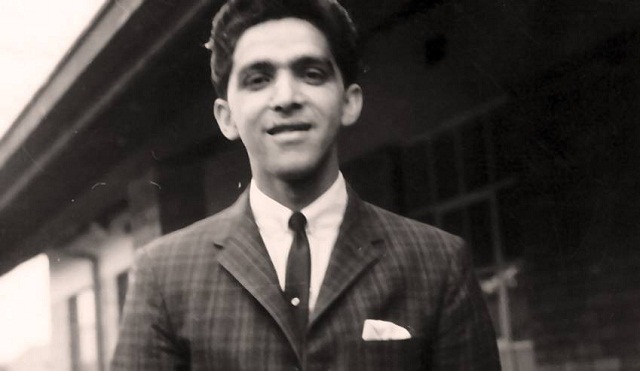
Johannesburg, South Africa | AFP | The brutal death of anti-apartheid campaigner Ahmed Timol was allowed to go quietly unsolved in the interests of South Africa’s democratic reconciliation.
But now more than 45 years after he fell from a 10th-floor window at a notorious regime security building and died, Timol’s case is being re-examined following a campaign to expose the truth led by his family.
Timol, a 30-year-old activist with the then-banned South African Communist Party (SACP), was arrested in Johannesburg on the night of October 22, 1971.
After being held in detention for five days, he was declared dead following his plunge from the blue-and-grey police headquarters onto the pavement below.
Following an investigation by authorities at the time, the anti-apartheid activist was found by a judge to have taken his own life.
Their verdict was not open to appeal.
“Murder, in the view of the testimony given, is excluded and even considering it, is ludicrous… To accept anything other than that the deceased jumped out of the window and fell to the ground can only been seen as ludicrous,” said the inquest judge, J.J.L. de Villiers.
Case closed.
But Timol’s friends and family would not be deterred from their pursuit of the truth.
His younger brother, who himself had been held in the apartheid regime’s jails, was particularly instrumental in the campaign for justice.
“Whether he was pushed out of the window or whether he was forced to jump, one can’t tell. But over the years I have always said that Ahmed was killed in police custody,” said Mohammad Timol.
Imtiaz Cajee, Ahmed Timol’s nephew, is unequivocal about the events of October 1971.
– ‘He was gruesomely tortured’ –
“He was gruesomely tortured and we believe he was murdered. If you look at the photographs of his body, nobody can believe he committed suicide,” he said.
“Remember he was already the 22nd person who died in police hands in 1971, so they already had a history of killing people in police detention.”
Timol’s nephew has also championed the campaign for truth, pursuing many different avenues, driven by his conviction that his uncle died unlawfully.
Over the years, Imtiaz Cajee has launched media appeals, created a foundation, organised exhibitions, published a book and even recruited a private investigator with the help of an NGO.
Then in October last year there was a breakthrough — prosecutors finally agreed to re-open Timol’s case.
“We are of the opinion that there is compelling evidence that necessitates the reopening of the inquest in the interest of justice,” the National Prosecuting Authority (NPA) wrote.
 The Independent Uganda: You get the Truth we Pay the Price
The Independent Uganda: You get the Truth we Pay the Price





